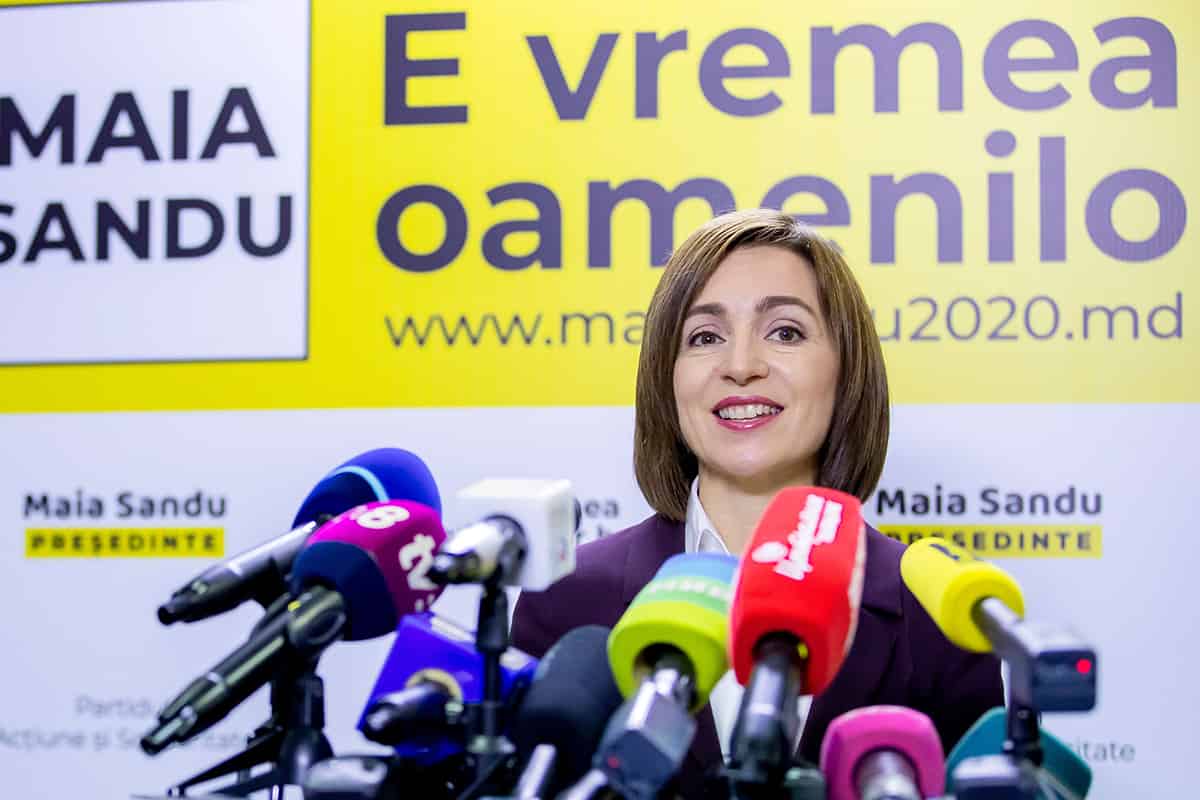Pro-EU former Prime Minister Maia Sandu beat pro-Russia incumbent Igor Dodon with 58% of the vote.

The wave of change rolling across the Commonwealth of Independent States continues, with Moldova joining Armenia, Belarus and Kyrgyzstan in holding elections that upended the status quo. On November 16, pro-EU former Prime Minister Maia Sandu beat pro-Russia incumbent Igor Dodon with 58% of the vote in the second round of presidential elections. Moscow supported Dodon but accepted the winner, and Sandu in turn stressed a desire for continued good relations with Russia.
Sandu is a Harvard-educated former World Bank economist who has long warned that her country of four million people—sandwiched between Russia and Romania, with which it shares close linguistic and cultural ties—risks becoming a failed state in addition to being Europe’s poorest country. She narrowly lost to Dodon in the 2016 elections, with some suggesting he won because “Russian voters” were bussed over the border into the pro-Russian Moldovan enclave of Transnistria. This time, observers were stationed in the country to prevent such an occurrence.
Tackling corruption and raising living standards will be Sandu’s first and second priorities, alongside tackling the Covid-19 pandemic, which has hit this country hard. “Sandu must navigate the muddy waters of vested interests and build a strong pro-reform coalition with enough international support to be able to push the reforms so desperately needed,” says Cristina Gherasimov, research fellow at the Robert Bosch Center for CEE, Russia and Central Asia in Berlin.
Sandu has called for snap parliamentary elections, arguing there is a strong desire for meaningful change. Her center-right party for Action and Solidarity would be well-placed to benefit from it. Gherasimov argues, however, that anti-reform forces in parliament could coalesce and block an early election. “Although a pro-European presidency resonates very well with the vast majority of the population, Moldova has always been split in terms of its geopolitical aspirations,” she says.
As president, Sandu can instigate an early election, and thereby “capitalize on her strong performance at the presidential election,” says Matthew Sherwood, East Europe analyst at research consultancy EIU. According to Sherwood, if pro-EU parties form the next government, then Moldova would embark on an unambiguously pro-Western course, marking another remarkable victory for Sandu.



